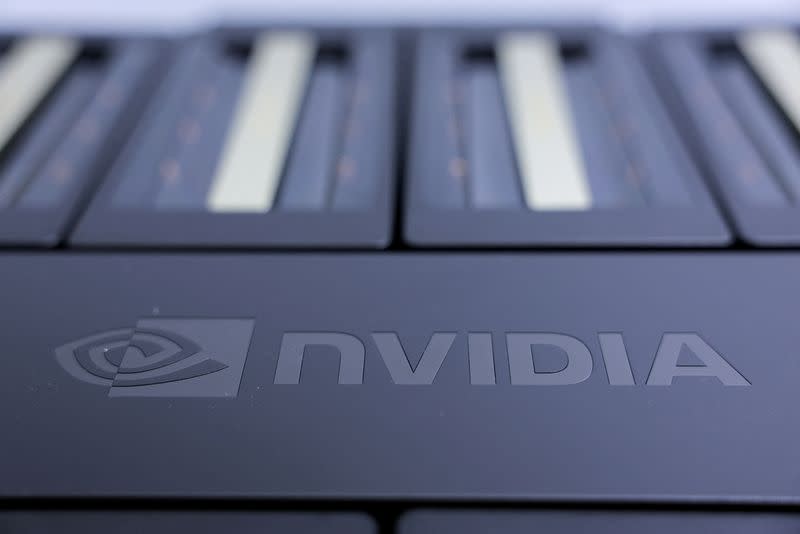Sports
Trump Avoids Nvidia’s Blackwell Chip Discussion with Xi at Summit

During a recent flight aboard Air Force One, U.S. President Donald Trump did not address the anticipated discussion regarding Nvidia’s new Blackwell chip with Xi Jinping, the President of China. This summit, which took place in Gyeongju, South Korea, was expected to cover various technological and economic topics, including advancements in artificial intelligence.
The absence of this critical discussion has raised eyebrows among industry analysts and policymakers, particularly given the significant role of semiconductor technology in global economic relations. The Blackwell chip, Nvidia’s latest offering, represents a leap in processing power and efficiency, fueling speculation about its potential implications for U.S.-China relations.
Context of the Meeting
Trump’s meeting with Xi was part of a broader effort to address bilateral trade issues and technological competition between the two nations. Both leaders were expected to explore ways to enhance cooperation while managing the ongoing tensions surrounding trade policies and technology transfers. The Blackwell chip, in particular, has been viewed as a pivotal development in the semiconductor industry.
According to Reuters, discussions surrounding the chip were notably absent from the agenda. Analysts suggest that this omission may reflect Trump’s strategic approach to negotiations, prioritizing other pressing issues over technology discussions that could further aggravate tensions with China.
Implications for U.S.-China Relations
The decision to sidestep Nvidia’s technology could have significant ramifications for the ongoing rivalry in the tech sector. The Blackwell chip is not only a technological advancement but also a symbol of the competitive landscape between the U.S. and China. As countries race to dominate AI and computing technologies, the implications of such discussions may affect future collaborations and trade agreements.
Industry experts have expressed concern that failing to address technological advancements, such as Nvidia’s offerings, could hinder productive dialogue between the two superpowers. With ongoing debates about supply chain security and intellectual property rights, the absence of dialogue on crucial technological innovations might limit the potential for mutual benefits.
As the global landscape continues to evolve, the relationship between the U.S. and China remains a focal point for international observers. The lack of a conversation about Nvidia’s Blackwell chip underscores the complexity of navigating technological diplomacy amidst competing national interests.
Moving forward, the tech industry will closely monitor the outcomes of future discussions between these leaders, especially as they pertain to strategic technological developments that could reshape economies and industries worldwide. The implications of decisions made in these high-stakes meetings extend far beyond politics, influencing market dynamics and innovation trajectories globally.
-

 World3 months ago
World3 months agoScientists Unearth Ancient Antarctic Ice to Unlock Climate Secrets
-

 Entertainment4 months ago
Entertainment4 months agoTrump and McCormick to Announce $70 Billion Energy Investments
-

 Lifestyle4 months ago
Lifestyle4 months agoTransLink Launches Food Truck Program to Boost Revenue in Vancouver
-

 Science4 months ago
Science4 months agoFour Astronauts Return to Earth After International Space Station Mission
-

 Technology2 months ago
Technology2 months agoApple Notes Enhances Functionality with Markdown Support in macOS 26
-

 Top Stories3 weeks ago
Top Stories3 weeks agoUrgent Update: Fatal Crash on Highway 99 Claims Life of Pitt Meadows Man
-

 Sports4 months ago
Sports4 months agoSearch Underway for Missing Hunter Amid Hokkaido Bear Emergency
-

 Politics3 months ago
Politics3 months agoUkrainian Tennis Star Elina Svitolina Faces Death Threats Online
-

 Technology4 months ago
Technology4 months agoFrosthaven Launches Early Access on July 31, 2025
-

 Politics3 months ago
Politics3 months agoCarney Engages First Nations Leaders at Development Law Summit
-

 Entertainment4 months ago
Entertainment4 months agoCalgary Theatre Troupe Revives Magic at Winnipeg Fringe Festival
-

 Top Stories6 days ago
Top Stories6 days agoFamily Remembers Beverley Rowbotham 25 Years After Murder



















